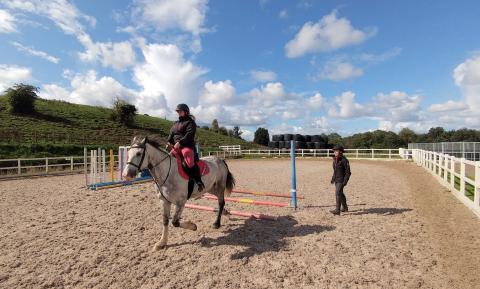Approved Training Farriers work as Registered Farriers but also employ, train and supervise the work and professional behaviour of Apprentice Farriers.
The level of supervision is the responsibility of the ATF and can range between:
- Direct Supervision - The apprentice is working in the same area as the ATF and is being observed
- General Supervision – the apprentice is working in the same premises as the AFT, who can be located quickly and easily
- Under Direction - the apprentice is working alone using his/her own initiative but the ATF has discussed the shoeing plan prior to work being undertaken.
An ATF will support their apprentices to achieve each stage of the Farriery Apprenticeship:
- Mandatory college assessments
- Level 3 Diploma in Farriery (work-based),Farriery Advanced Apprenticeship requirements including Level 2 Key Skills
- Diploma of the Worshipful Company of Farriers Examination
- The period of training prescribed by the Farriers Registration Council (currently four years and two months).
ATFs work closely with College tutors, assessors and verifiers, Field Officers, Horse owners and Vets.
Working Conditions
Farriers working hours vary from week to week, depending on the needs of their customers and usually include weekends. They do most of their work during daylight hours; however, they may also provide emergency cover which can be at any time of the day or night.
They travel between different customers' workplaces, such as farms, riding stables, and livery yards, to carry out their work. A driving licence is necessary as is a vehicle suitable for carrying around a mobile workshop of stock and tools.
Farriery is hard, physical work. It involves bending, lifting and walking, and sometimes working outdoors in all weather conditions.
ATFs will often spend additional time with their apprentices in the forge to provide practical training in shoe and tool making.
Salary
Salaries vary with experience, qualifications and between companies, but here's a guide to what you can expect.
£16,000
£35,000
Getting started
To become an ATF you will need to have been qualified as a Registered Farrier for a minimum of 4 years before applying to become an ATF. Before this you will have undertaken the Advanced Apprenticeship in Farriery.
What experienced workers can do
- Market your services and find new customers
- Manage a small business
- Provide coaching and mentoring to an apprentice
- Maintain and operate mobile gas and coke fired forges
- Handle and control equines
- Assess the overall condition and footcare requirements of the equine
- Determine the footcare and shoeing plan for the equine
- Remove horseshoes and assess wear
- Trim and dress hooves
- Make and fit horseshoes
- Attach horseshoes and finish the shoeing process.
Personal qualities you should have
- Have a genuine interest in horses and their welfare
- Good communication skills
- Good organisation skills
- Flexible and adaptable
- Self-motivated
- Be able to work alone or as part of a team.
Next steps
ATFs will be self-employed or may work for a large organisation. There may be opportunities to move into lecturing or providing a consultancy service.
Useful links
The British Farriers & Blacksmiths Association
The Farriers Registration Council
Worshipful Company of Farriers
